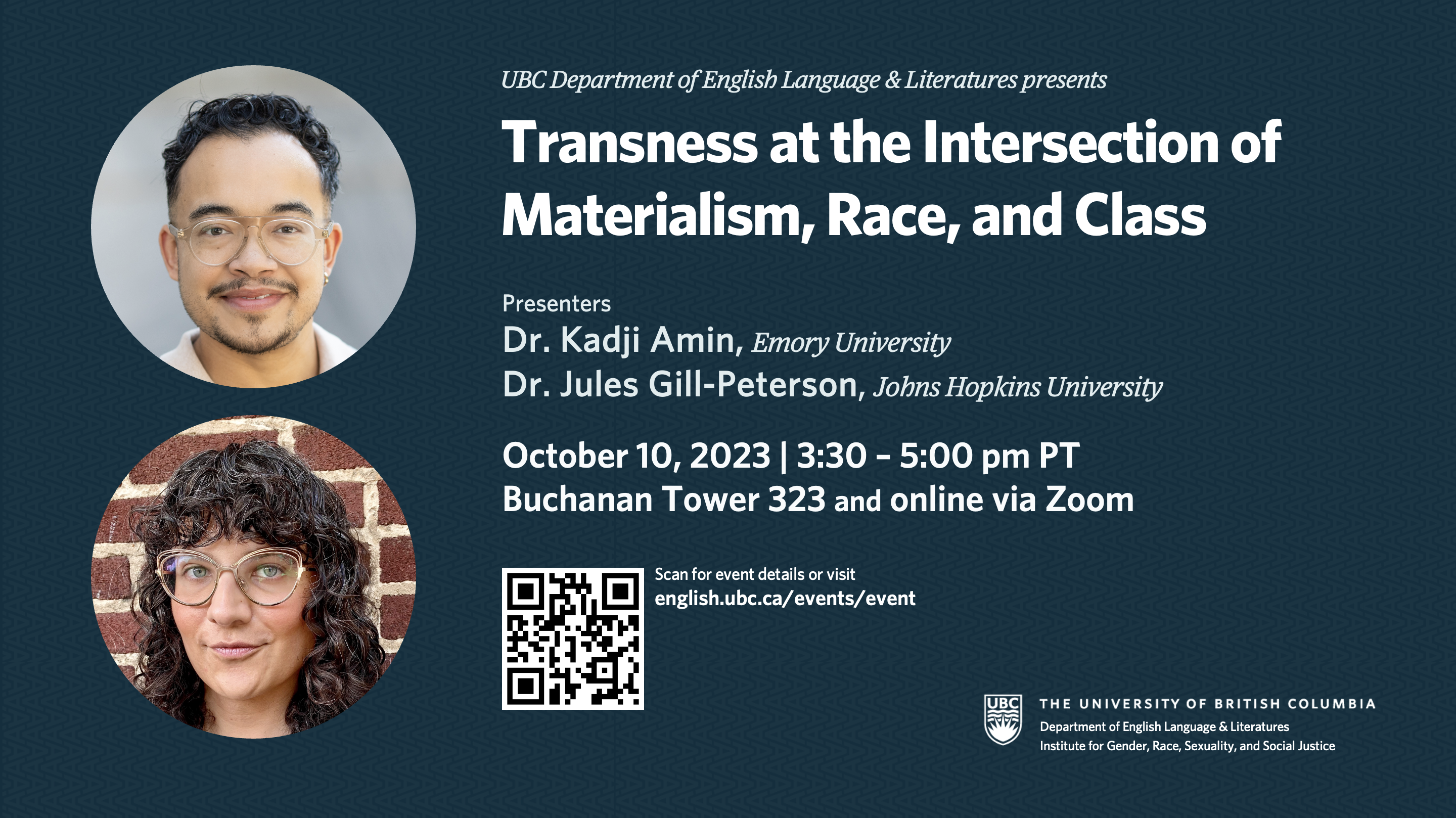

This event is hosted by the UBC Department of English Language & Literatures and sponsored by the Institute for Gender, Race, Sexuality, and Social Justice.
Buchanan Tower is wheelchair accessible. Room 323 has doors 36 inches wide. In consideration of COVID safety, the speakers have requested for in-person attendees to wear a mask.
Talk Abstract
Dr. Jules Gill-Peterson: Trans Medicine as Welfare Reform
To better understand the political crises of the present, this talk proposes a major shift to materialist analysis in trans studies by highlighting race and class antagonisms in the medicalization of transition. The effective dependency of the mid-century trans medical model on its political-economic function was first elaborated in San Francisco in the late 1960s. There, Stanford University’s famous gender clinic coordinated with a new social service landscape for gay and trans people, federally-funded through Great Society liberal programs. Reading these developments in their convergence, the modern gender clinic is less a strictly medical or psychiatric program than it is an exercise in welfare reform.


Jules Gill-Peterson (she/her/hers) is an associate professor of History at Johns Hopkins University. She is also a fellow at the Radcliffe Institute at Harvard University this year. She is the author of Histories of the Transgender Children (2018) and a general co-editor of TSQ: Transgender Studies Quarterly. Her next book, A Short History of Trans Misogyny, is forthcoming from Verso Books in January 2024.
Talk Abstract
Trans Materialism without Gender Identity
This talk forwards trans materialism as the political legacy of working-class, sex-worker, and people-of-color trans history. Through at least the 1960s in the US, the transitions of people of color, working-class people, and sex workers were based not on an introspective inquiry into authentic gendered subjectivity, but rather on directly material concerns – namely, how to earn a living, modify one’s sexed embodiment and/or gendered social position, and survive. Based on this history and building on the work of Cathy Cohen, Viviane Namaste, and Dean Spade, this talk forwards trans materialism as an intersectional coalitional politics focused on making the basic resources necessary to transition – including housing and access to public space without police harassment – available to all. Trans materialism’s focus on the resources necessary for transition and the practices through which people transition is intended to bypass both the respectability politics of gender identity and the infighting that vernacular taxonomies of gender and sexual identity inadvertently produce. For historically, gender identity has most often served as a proxy for social antagonisms regarding class, race, public space, and labor. Trans politics therefore retains its capacity for social transformation to the extent that it rejects the false logics of identity for the exigencies of materialism.


Kadji Amin (he/him/his) is Associate Professor of Women’s, Gender, and Sexuality Studies at Emory University and a 2023-4 fellow at the Cornell Society of Fellows. Amin is a materialist theorist of gender and sexuality. His research brings empirical scholarship on the history of sexuality to bear on trans and queer theory. Amin’s book, Disturbing Attachments: Genet, Modern Pederasty, and Queer History (Duke UP 2017) won an Honorable Mention for best book in LGBT studies form the GL/Q Caucus of the Modern Language Association. He is currently at work on a second book titled Trans Materialism without Gender Identity.
